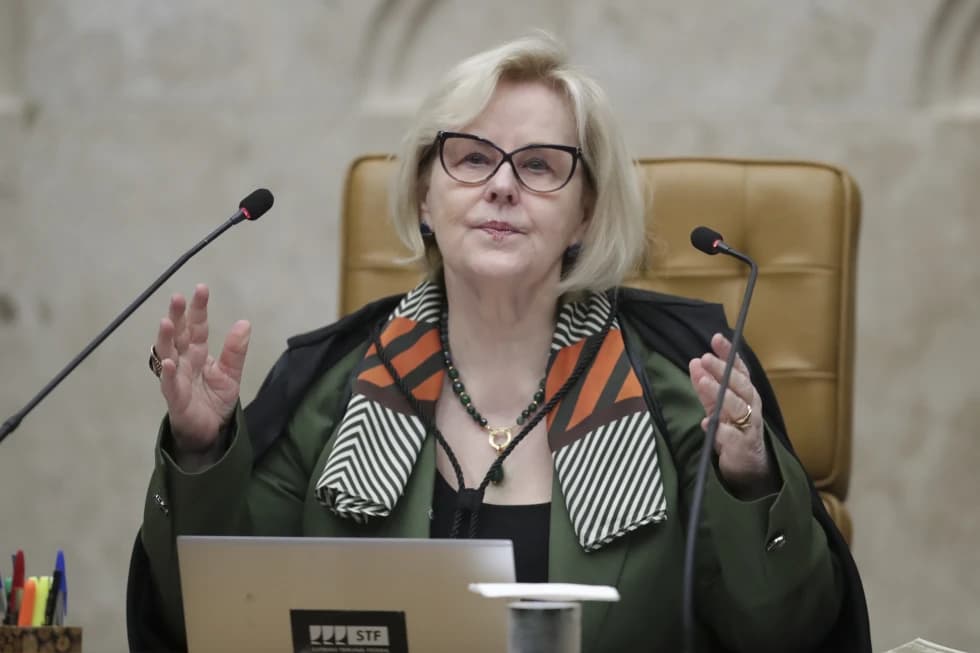SÃO PAULO – Although Brazil’s Catholic bishops have launched a full-court press against the decriminalization of abortion ahead of a looming Supreme Court decision, critics nevertheless are faulting them for allowing things to come to this point by, in the eyes of some, backing left-wing President President Luiz Inácio Lula da Silva in the country’s 2022 election over conservative Jair Bolsanaro.
That’s a critique that both the bishops and some leaders in Brazil’s pro-life community reject, arguing that the current Supreme Court case would have arisen regardless of who occupies the presidency.
Brazil is the world’s largest Catholic country in terms of population. Currently, abortion is legal in only three cases: If a pregnancy was the result of rape, if it endangers the life of the mother, or if the fetus is anencephalic (meaning missing part of the brain and skull.)
In 2017, the leftist Socialism and Liberty Party, known by its Portuguese acronym PSOL, filed a petition with the Supreme Court arguing that criminalizing elective abortion damages women’s rights of citizenship guaranteed under the national constitution, in that it denies them the “ethical and political capacity to take reproductive decisions to fulfill their life projects.”
The party also claimed that the criminalization of abortion violates the women’s right to health and fails to prevent torture and inhumane or degrading treatment, “given that the denial of the right to abortion can cause serious pains and sufferings to a woman, even more worrying and predictable ones when specific conditions of vulnerability are considered, such as age, class, color, and disability.”
The 11-member Supreme Court took up the case, setting the stage for hearings which opened on Friday.
From the beginning, the Catholic bishops’ conference in Brazil, the CNBB, has been active in opposing legalization.
In 2018, Bishop Ricardo Hoepers, the current secretary general of CNBB, took part in a hearing organized by the Supreme Court and stated that “the right to life is the most fundamental of rights and, therefore, more than any other, it must be protected.”
“It is an intrinsic right of the human condition and not a concession from the state,” he said. The powers of the republic have an obligation to guarantee and defend it.”
Now that the issue is back on the Supreme Court’s schedule, the bishops’ conference is releasing notes and posting messages on social media against abortion on virtually a daily basis. Clergy and laity have also been urged to express opposition to decriminalization.
The bishops’ stance, however, has drawn criticism from some elements of Brazil’s pro-life community on the basis that their perceived backing of Lula a year ago set the stage for today’s developments.
“You made the L, CNBB,” one social media user charged, employing a Brazilian slang reference for supporting Lula.
Such critics insist that the Brazilian episcopate should have sided last year with former President Jair Bolsonaro, an outspoken critic of abortion, and publicly excommunicated Lula for his “pro-abortion” views.
The perception that the bishops opposed Bolsonaro is based on several high-profile clashes between Church and state during his tenure, including over the devastation of the Amazon rainforest and also his skeptical stance on Covid-19 vaccination.
Yet other pro-life leaders say such criticism doesn’t apply to the current situation.
“Party polarization is a serious issue in Brazil, [but] in this concrete case, the federal government doesn’t have anything to do with the analysis of decriminalization of abortion by the Supreme Court,” Lenise Garcia, who heads the pro-life movement Brazil Without Abortion, told Crux.
The case could have arisen during Bolsonaro’s administration, she said, and neither president would have been able to control the Supreme Court’s actions.
More broadly, Garcia rejected the idea that the bishops en masse threw their weight behind Lula.
“The CNBB did not ‘make the L’,” she said. “Some bishops may have declared their support to Lula, but not the institution as a whole.”
In Garcia’s opinion, the best strategy to deal with such a polarized situation is to “launch campaigns that reach beyond parties and religions.”
“That is what we are doing in our movement. We work side by side with Evangelicals, Spiritists, and Seicho-no-Ie [a New Thought Japanese new religion with a large following in Brazil],” she said.
Auxiliary Bishop Reginei José Modolo of Curitiba, who heads CNBB’s Special Commission of Bioethics, told Crux that the Brazilian Church “has never failed to show with clarity its firm repudiation of abortion.”
“Of course, that subject may have been presented with more or less vehemence in different moments. But the hierarchy has always played its role and shown the indisputable moral element of its stance against abortion,” he said.
Modolo affirmed that it is fundamental that lay Catholics voice their rejection of legalization, to avoid it to becoming “a morally acceptable thing only because it is legal.”
“We have to show to the Supreme Court that the Brazilian people repudiate it,” he said.
Only one Court member, Justice Rosa Weber and the current president of the court, has already declared her vote ahead of her impending retirement, saying she backs decriminalization.
According to Garcia, it’s not possible to predict how the other justices will vote at this point. Large demonstrations will be held in the next weeks, she said, in order to put pressure on Brazilian leaders – especially on Congress, she said, which could adopt legislation forbidding abortion, effectively neutralizing the impact of a Supreme Court ruling.
“Those will be strategic steps for us,” she said.















